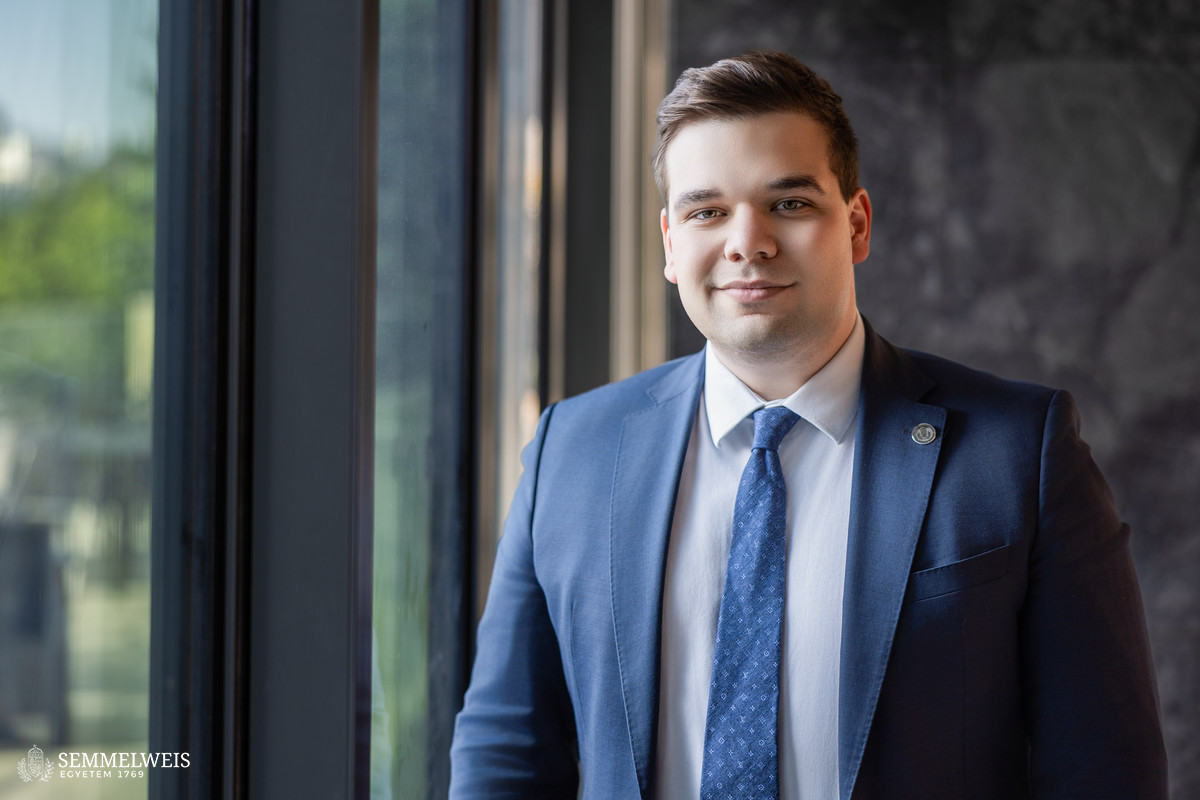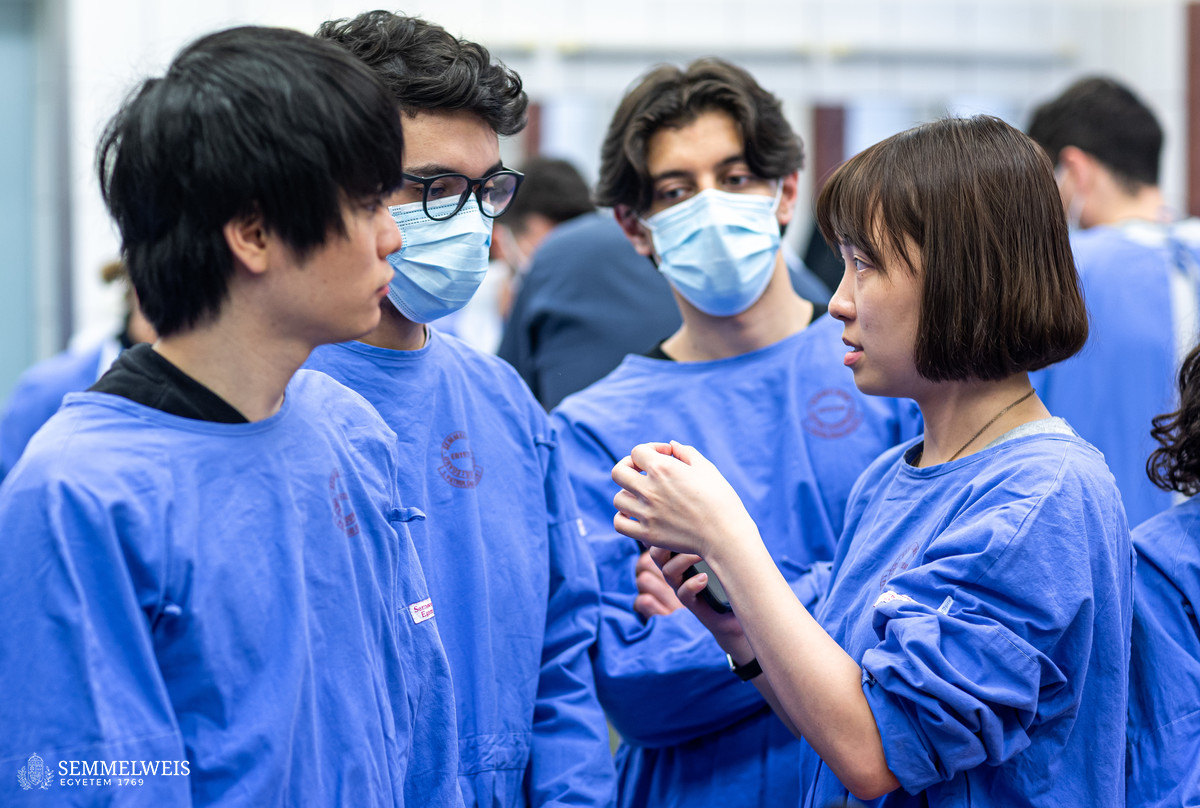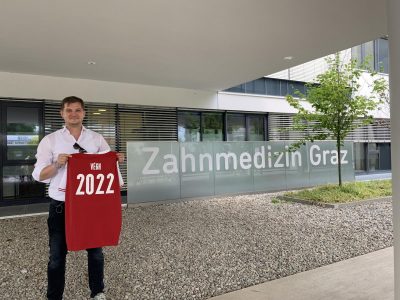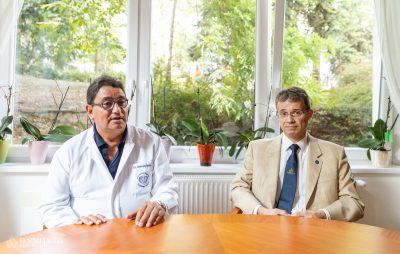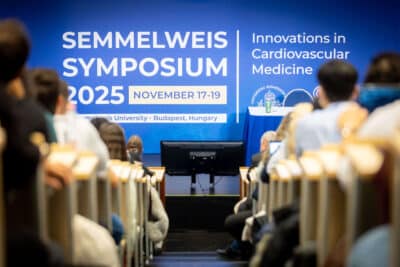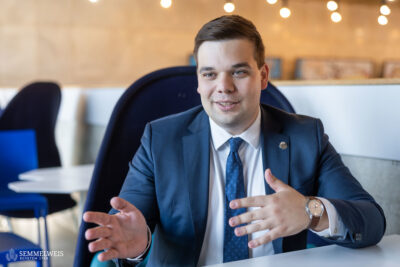 “For me, everything related to the university is motivating and exciting, and it is an important challenge and an honor to be able to help achieve the goals set by the institution’s leadership in yet another area,” said Dr. Tamás Hegedüs, who has been heading the Directorate of International Relations and Alumni Affairs since June 1. At its April meeting, the Senate of Semmelweis University decided to merge the Directorate of International Relations and the Alumni Directorate, thereby creating a new organizational unit.
“For me, everything related to the university is motivating and exciting, and it is an important challenge and an honor to be able to help achieve the goals set by the institution’s leadership in yet another area,” said Dr. Tamás Hegedüs, who has been heading the Directorate of International Relations and Alumni Affairs since June 1. At its April meeting, the Senate of Semmelweis University decided to merge the Directorate of International Relations and the Alumni Directorate, thereby creating a new organizational unit.
Dr. Tamás Hegedüs told us that international relations had also been an integral part of his work before, albeit from a different perspective. As head of the Alumni Directorate, he paid particular attention to strengthening the community of former students, among whom there is a significant number of international alumni. Today, in addition to nearly 45,000 Hungarians, 10,000 students who graduated from the English and German-language programs are listed in the alumni database.
This area is particularly important as our former students are ambassadors for Semmelweis University around the world and play a key role in internationalization processes and in further enhancing our reputation, which is also reflected in our position in the rankings. – Dr. Tamás Hegedüs
Alumni are also indispensable from a recruitment perspective, as experience shows that around 80 percent of first-year international students chose Semmelweis University on the recommendation of someone who had once studied here, he added.
As Director for International Relations and Alumni Affairs, Dr. Tamás Hegedüs aims to further boost this area. Semmelweis University currently has cooperation agreements with around 200 higher education institutions worldwide, and it is important to enrich these with quality and genuine content behind them, he pointed out.
In order to increase activity, it is necessary to look specifically at which universities could be considered for joint publications and research, and in which areas. In addition, it is worth increasing the number of courses, summer schools, and other events that can be organized through international cooperation, good examples of which are the unique Harvard Medical School’s Clinical Science Scholars program at Semmelweis University and the Trilateral Symposium held every two years with Heidelberg University and the University of Freiburg.
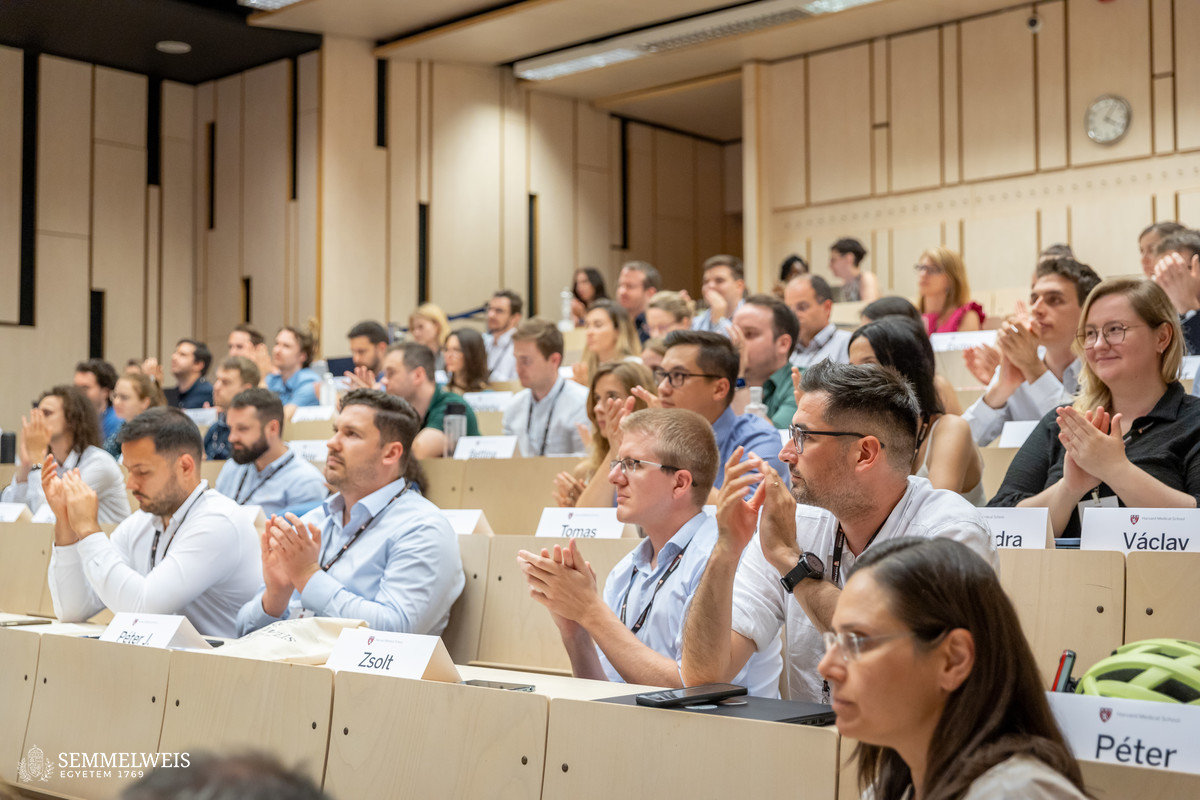
“So as to move forward, it is essential that our staff and students know with which universities we have already established relationships, so that when they are looking for cooperating partners or mobility locations, they do not have to start from scratch. To this end, we are already working on creating a transparent database that is easily accessible to everyone on internal communication platforms,” the director reported. “We are also focusing on strengthening our relationships with our partners that are among the world’s top 100 institutions,” he noted.
The new directorate aims to foreground a service-oriented approach, which is why the director encourages members of all organizational units to feel free to contact them if they want to initiate new international relations or need help with ongoing agreements.
“I believe it is important that university citizens gain international experience in addition to the high-quality knowledge they acquire at Semmelweis, so that they can develop and be open to the world,” said Dr. Tamás Hegedüs, who would like the institution to have agreements with as many universities as possible specifically for mobility under the Pannónia Scholarship Programme, so that even more lecturers and students can take advantage of the opportunities offered by the program. To lay the groundwork for this, the international scholarships web page was redesigned in cooperation with the Directorate of Communication, making it more transparent and easier to use. Another goal is to digitize the currently paper-based application processes and integrate them into a common platform where other university services will also be available.
One of the priority tasks is the coordination of fee-based, short-term educational programs, which are available primarily to non-Hungarians. “In this regard, it is important to have a certain kind of centralization, so that sales are based on a unified business plan and all programs are available on a common platform,” the director pointed out.
Dr. Tamás Hegedüs has been a Semmelweis Citizen since 2015, when he was admitted to the Faculty of Dentistry. As he put it, he has a very strong connection to the university, if only because all the important events of his adult life are related to it. He is convinced that his participation in clinical work and the education of students also supports his work as director because he can experience firsthand the way the university functions.
Pálma Dobozi
Translation: Dr. Balázs Csizmadia
Photos by Bálint Barta, Boglárka Zellei, Attila Kovács – Semmelweis University
